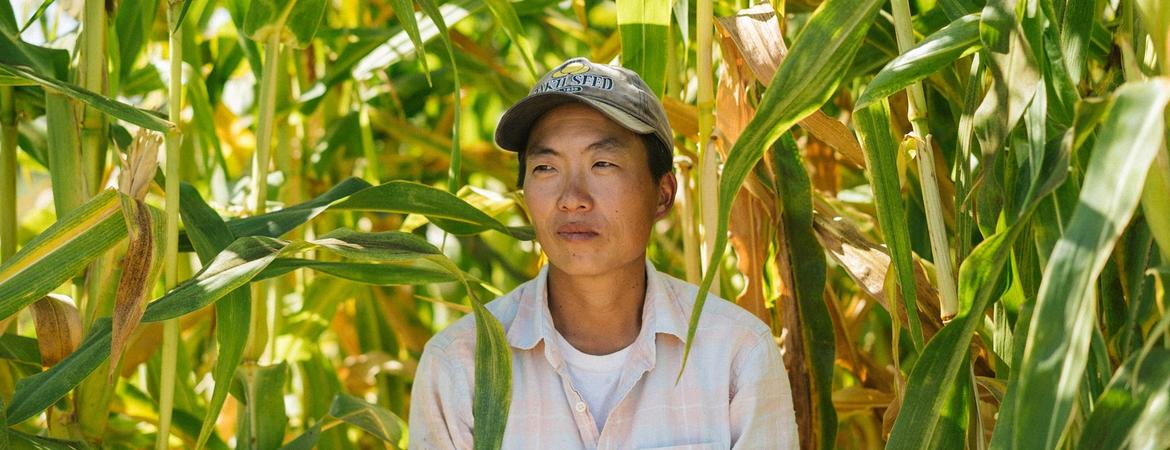Center for Social Innovation

How Asian American farmers are helping low-income and elderly AAPI access fresh food and culturally specific ingredients during the pandemic.
Every week, the local nonprofit API Forward Movement packs hundreds of 5-pound tote bags filled with locally grown produce like bok choy, napa cabbage, daikon and Chinese eggplant in their Downtown Los Angeles office. They deliver the bags to hospitals, churches and community groups throughout L.A. County, where local families in need of fresh vegetables amid the pandemic can pick them up.
For some Asian Americans and Pacific Islanders who live in Los Angeles’ food deserts — areas that may be abundant in fast-food chains but lack access to the fresh and affordable produce that grocery stores and food markets sell — the pandemic doesn’t just prevent them from having access to nutritious foods. There’s also a scarcity of the type of culturally relevant produce — a need that’s been particularly apparent amid California’s stay-at-home orders.
That’s where groups like API Forward Movement come in. Their work allows families to still be able to cook and consume their produce in culturally specific ways that are familiar to them, from tossing vegetables into soups and stews to pickling them for later.
These needs shed light on the economic diversity in Asian American and Pacific Islander communities in California, where AAPIs represent about 1 in 6 residents and are the fastest-growing racial groups in the state. While Asian Americans are often viewed as economically secure, according to the 2019 AAPI California Workers Survey, nearly 1 in 4 AAPIs in the state works but struggles with poverty.
“Some AAPI populations were at risk before, but as far as we can tell, the situation has gotten worse because of COVID-19,” said Karthick Ramakrishnan, professor of public policy and political science at the University of California, Riverside, and the founder and director of AAPI Data. “We’re seeing a significant increase in unemployment, and there are many essential workers who don’t have the kinds of wages that are sufficient to meet their basic needs.”
“COVID-19 has shown the fuller experience of Asian Americans and Pacific Islanders when it comes to not just documenting the rise in hate crimes, but also highlighting issues like access to health care and food insecurity,” said Ramakrishnan.